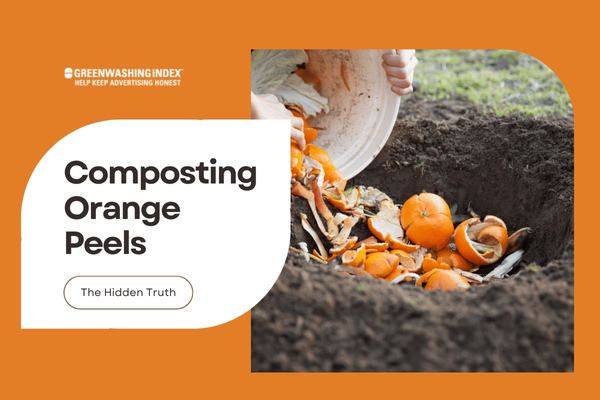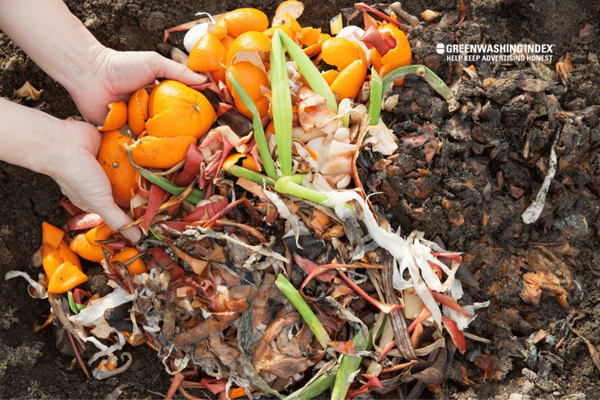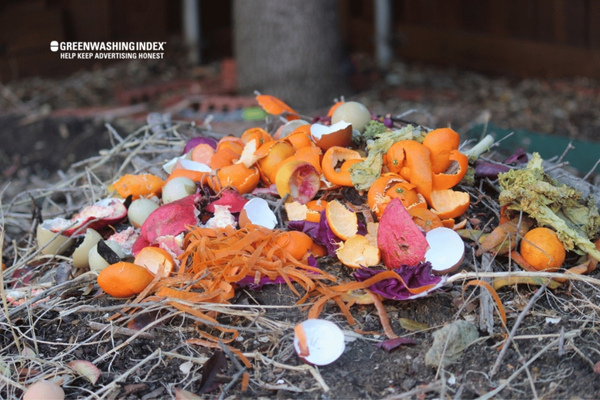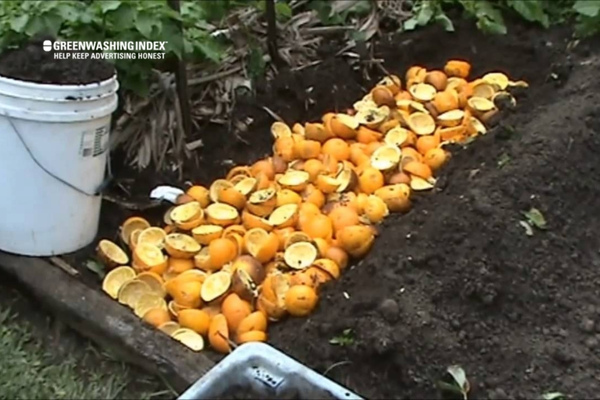

Composting orange peels can transform what many consider waste into a valuable resource for your garden. The vibrant, nutrient-rich scraps not only enhance soil fertility but also contribute to sustainable living practices. Imagine the sweet scent of citrus mingling with the earthy aroma of compost as you enrich your garden.
By incorporating orange peels into your compost pile, you unlock a world of benefits that go beyond simple waste management, fostering a healthier ecosystem right in your backyard. Embrace the power of composting and watch your garden thrive!
The world of sustainable living, I found myself on a fascinating journey where something as simple as composting orange peels can make such a significant impact. I’ve stepped into this space with two main talking points to think over: The essence of the composting process and then deciphering if you really can compost orange peels.

Composting, a term often thrown around in conversation when discussing gardening or sustainable living, is as beautifully simple yet complex at its core. It is transforming everyday organic waste that we generate into rich, fertile soil that feeds plants and nourishes gardens.
From your morning coffee grounds to the vegetable peelings you toss aside while cooking dinner, every bit plays an essential role within your compost pile.
Now onto a contentious topic that’s been discussed more frequently. “Can you compost citrus peels?” Now to clarify any potential misgivings right here – yes! You absolutely can put those orange or other citrus peels straight onto your compost pile.
However, it’s crucial to acknowledge nuances existing in this operation like maintaining balance in ingredients used and following proper preparation steps for fruit scraps. But fundamentally speaking, those tangy additions are perfectly welcome amidst various other elements of kitchen waste for organic recycling.
The beauty of nature’s processes and diversity allows those concerns around citrus peel acidity or possible insect attraction to be handled deftly within well-managed compost piles.
Unlocking this secret teaches me that “composting orange peels” is not only possible but offers a wealth of benefits for our gardens and environment. This move lets us convert otherwise discarded parts of our favorite fruits into valuable soil amendments while actively promoting sustainable living habits.
Composting orange peels can be a beneficial practice for enriching your garden soil. These peels are rich in essential nutrients such as nitrogen, phosphorus, and potassium, which support plant growth.
However, to ensure successful composting, certain key factors should be considered:
Before diving right into composting orange peels, it’s important to consider a couple of challenges we might face. The natural acidity levels within the peels and the potential for pest invasions are two concerns that can affect your garden if not managed correctly in the compost. But worry not! I’ll provide some tips and tricks to help you overcome these hurdles with ease.

A common question when composting orange peels is – will they turn my compost pile too acidic? Let’s demystify this concern. Yes, citrus fruits including oranges are naturally acidic, but their acidic nature shouldn’t necessarily be a cause for alarm.
When fresh and moist, orange peels have a low pH which means they are indeed quite acidic. However, as they decompose in your compost pile, their acidity neutralizes over time:
The takeaway? With proper management techniques applied during your organic waste recycling sessions, the added acidity from our friendly citrus remnants can be easily accommodated!
Another potential challenge is pests being attracted by the sweet smell of decomposition or fruit flies using your newly-composted orange peels as their breeding grounds. Here’s how we handle this:
The bottom line? Composting orange peels can attract pests, yes, but it’s not a given. There are ways to mitigate such issues, turning what may look like drawbacks into opportunities to fine-tune your composting skills.
The art of composting kitchen waste including citrus peels ultimately boils down to balance and proper maintenance. Following these simple steps will ensure your compost pile remains nutritious and beneficial to your garden without becoming a pest magnet!
I’ve already established the possibility and methodology of composting orange peels. Now, we’ll delve into why composting citrus peels is worth your time and effort. From boosting your garden’s vitality to supporting a sustainable lifestyle, these benefits might give you enough reasons to toss that next orange peel right in your compost pile.

The initial benefit circling my mind is the nutritional treasure trove encapsulated in orange peels. Beyond adding volume, these often disregarded kitchen scraps are a source of vital nutrients that can enrich your soil profoundly.
Composting orange peels isn’t exclusively about boosting soil health or accelerating decomposition; it echoes our commitment towards more sustainable living practices. Whether you’re an environmental steward or aspire to be one, incorporating this habit can unfold noticeable impacts over time.
Absolutely! You can include peels from lemons, limes, and grapefruit. All citrus peels are suitable for composting despite their acidity.
Typically, orange peels take around three to six months to decompose in a compost pile fully. The process may vary based on the composting conditions and how small the pieces are.
Interestingly enough, many gardeners claim that including citrus-like oranges in your compost can help deter certain pests. The strong scent of citrus might repel some insects and critters.
Composting orange peels presents a sustainable solution for kitchen waste, transforming it into nutrient-rich soil. It sounds like a win-win scenario, as these peels typically take about three to six months to decompose, depending on conditions and preparation.
By incorporating orange peels into compost, gardeners not only enhance soil fertility but also reduce landfill waste. This practice supports a healthier environment while mitigating concerns about acidity and pests when managed properly. Ultimately, composting orange peels embodies a commitment to eco-friendly living and resourcefulness.

Don't let aphids, slugs, and caterpillars ruin another plant. Take back control with simple, natural methods that actually work.